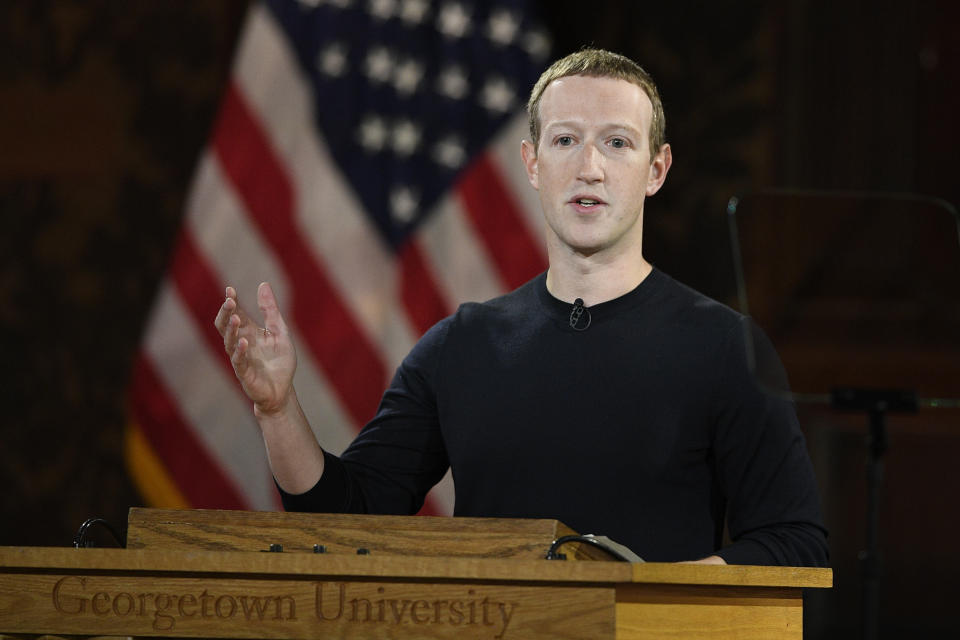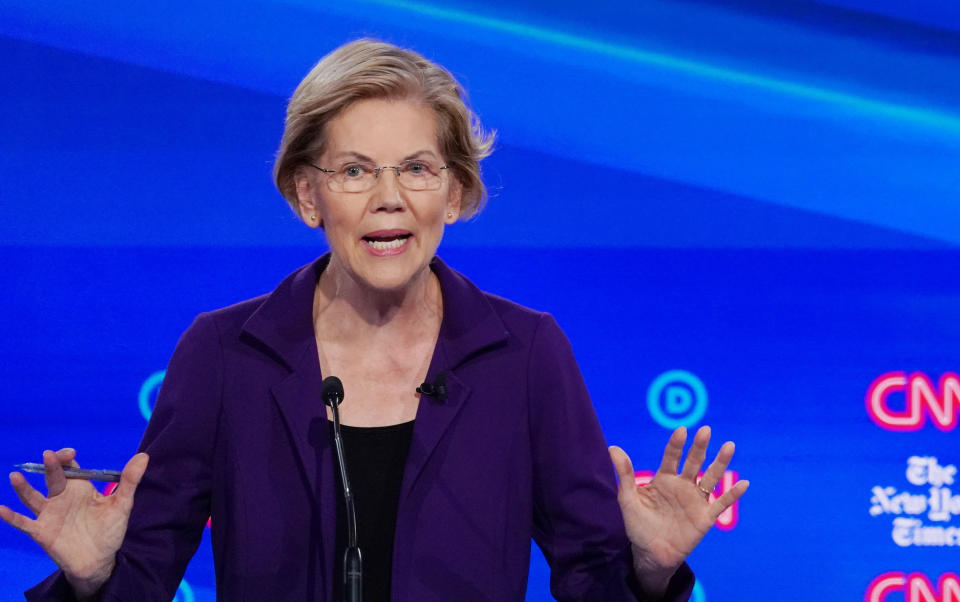Facebook announces efforts to safeguard 2020 election, fight fake news
Facebook (FB) CEO Mark Zuckerberg on Monday announced a series of steps the social network is taking ahead of the 2020 U.S. presidential election to prevent interference from both foreign and domestic groups.
The changes include stepped up enforcement to combat coordinated inauthentic behavior on the site by cracking down on nation states and other groups that hide their identities to spread misinformation; a new way feature for politicians, candidates, and their teams to protect their accounts; clearer fact checking labels; and an all-out ban on ads meant to keep voters away from the polls.
"The bottom line here is that elections have changed significantly since 2016, and Facebook has changed too," Zuckerberg said during a call with reporters, adding that the company has built systems to fight interference. He argued that Facebook's efforts are more advanced than other businesses and governments fighting election interference.
Facebook's election preservation efforts have been a source of constant scrutiny for the company since U.S. intelligence agencies revealed in 2016 that Russian agents deployed an army of fake accounts on the social network to sow discord among U.S. voters in the lead-up to the 2016 election.
According to Zuckerberg, Facebookhas taken down 50 clusters of fake accounts in 2019 so far.

Increased transparency and clearer fact-checking labels
In addition to taking down inauthentic accounts, the company says it will increase the transparency of popular Pages, to prevent page owners from hiding their true identities.
"To address this, we’re adding more information about who is behind a Page, including a new “Organizations That Manage This Page” tab that will feature the Page’s “Confirmed Page Owner,” including the organization’s legal name and verified city, phone number or website," Facebook's Guy Rosen, Katie Harbath, Nathaniel Gleicher, and Rob Leathern said in a press release issued by Facebook.
Facebook is also offering a new service that helps politicians and candidates protect their accounts, as well as clearer fact-checking labels on Facebook and Instagram.
The new labels will blur images of posts that have been proven false through independent fact checkers. You'll then be able to click through to the false post if you choose to do so.
Facebook says it is also banning ads that attempt to suppress voter turnout. For instance, ads that tell Facebook users that elections take place on the wrong day, or that they can vote via text, or that their votes don't count for some reason.
Facebook has not always acknowledged that it can be used to influence voters. Shortly after the 2016 election, Zuckerberg dismissed claims that Russia's efforts had an impact on the way people voted. However, Zuckerberg eventually changed his stance as more evidence became available about Russia's interference.
The company has since worked to prevent similar issues in elections around the world, including those in France, Germany, the European Union, and in South America.
Part of that includes Facebook working to take down large groups of fake accounts set up by the country's military in an effort to spread fake news. Facebook says it's been successful in taking down millions of fraudulent accounts, but noted that other adversarial nations like Iran and North Korea have followed with efforts similar to Russia’s.

Facebook is dealing with a slew of controversies at the moment including unfounded claims the platform has a bias against conservative voices. Presidential hopeful Elizabeth Warren (D-Mass) is actively pushing to break up the company, claiming it exerts too much power over the advertising industry and is stifling competition.
Last week, during a speech at Georgetown University, Zuckerberg spoke out against calls for Facebook to do more to control the kind of content it allows users to post. Zuckerberg also defended his decision to allow politicians to lie in their own political ads.
"I hope that this gives the sense of the progress we've made over the past few years," Zuckerberg said. "We know that we have a big responsibility to secure our platforms and stay ahead of some of these new sophisticated threats to elections here and around the world."
More from Dan:
Got a tip? Email Daniel Howley at [email protected], and follow him on Twitter at @DanielHowley.
Follow Yahoo Finance on Twitter, Facebook, Instagram, Flipboard, SmartNews, LinkedIn,YouTube, and reddit.
